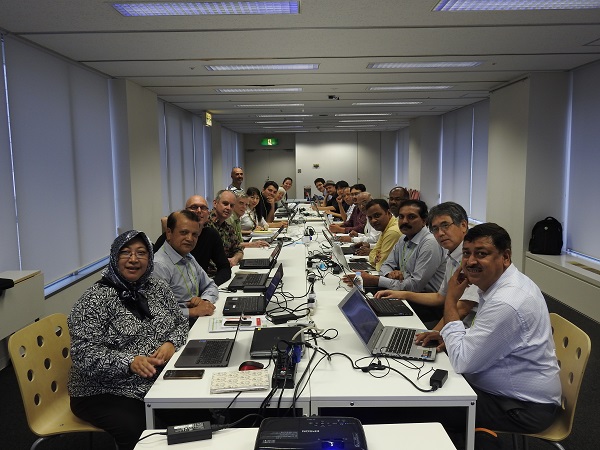The final authors’ meeting for the IPBES Asia-Pacific Regional Assessment held in Tokyo from July 24th to28th.
The Intergovernmental Science-Policy Platform on Biodiversity and Ecosystem Services(IPBES) was established in 2012 to assess the state of biodiversity and the ecosystem services that biodiversity provides to society.It aims to play a similar role for biodiversity and ecosystem services as the IPCC does for climate change, i.e. providing policy makers with objective scientific assessments. The difference between them is that IPBES does not carry out direct research, but to collects, standardizes and integrates existing scientific data and information, to produce valuable assessment. Its current membership includes 127 governments and it is administered by the United Nations Environment Program (UNEP). IPBES is currently producing assessments onvarious methodological issues and on specific themes, such as pollination, land degradation, and invasive species, as well as regional assessments for Africa, the Americas, Europe and Central Asia, and Asia and the Pacific, and a global assessment.
To assess biodiversity and ecosystems in the Asia-Pacific region, the Global Environmental Strategies (IGES) of Japan was commissioned by the Ministry of the Environment as a the Asia-Pacific regional technical support unit (TSU), have held two Author meetings in 2015 and 2016, with the aim of making an objective and scientific assessment of biodiversity and ecosystem services in the Asia-Pacific region through the collection and integration of existing data. This is the final Authors’ Meeting of the assessment, which discussed and refined the preliminary draft of the assessment report to address the issues in the assessment itself and in the assessment report, including the text, forms, and pictures and so on of the assessment report.
Professor Corlett from XTBG is a Lead Author for IPBES Asia-Pacific Regional Assessment, which covers West Asia, South Asia, Northeast Asia (including China), Southeast Asia, Australasia, and the islands of the Pacific. His main role is to contribute to Chapter 3 of the assessment, which assesses the current status and trends of biodiversity and ecosystems services in the region. He has been focusing on forests, karst, islands, and urban areas, while other authors deal with other terrestrial ecosystems, as well as freshwater and marine habitats. So far, the text has already been through two rounds of external review by experts and by representatives of the regional governments, and the authors had to respond to each of their comments and suggestions. After obtaining the approval of all members, the IPBES- Asia Pacific Biodiversity and Ecosystem Services Assessment Report is expected to be released in 2018.
IPBES is new and these are the first regional assessments, so the ultimate success of the IPBES process is hard to judge at this stage. Data has never previously been collected for the Asia-Pacific, defined in this way, so the authors have had to collect information from many different sources, standardize it, and then combine it. It is hoped that these assessments will be repeated at intervals in the future, and that the completion of the first ones will encourage collection of standardized data across the various regions.
Besides Corlett Professor, there still had some Chinese experts from Center for environmental protection and foreign cooperation, Environmental Protection Department of Nanjing Institute of science and technology, Chengdu Biological Institute of Chinese Academy of Sciences, Peking University and the Wuhan University have participated in the writing of some chapters and sections of the assessment report.


